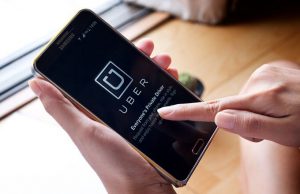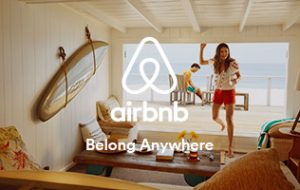After I have read Michael Dobson’s blog on his concerns that shared economy fulfills an unrealistic demand in economy and once it goes wrong, only consumers and contractors would get hurt, I may insist a different opinion. The launch and widespread usage of Airbnb and Uber has suggested a trend that these “digital matching firms” has successfully catered people’s need in this technology-driven society.
Workers get the chance to decide their typical working hours using their own property as spare earnings. Through the use of “apps” on Internet enabled devices and user-based rating system, the ensured quality of service and relatively low price have attracted more and more consumers. The sharing economy offers us more freedom and flexibility to work and to satisfy our personal preferences. Although the company does not offer insurance to cover consumers and contractors’ loss if there is any incidents happened. It is our responsibility to take the risks once we selected their platform and made our choices. And as for Michael mentioned in his blog that if something goes wrong, only the consumers and contractors get hurt and the corporations can get away earning more profits by doing nothing. This seems untrue to me. Companies which use the concept of sharing economy are highly rely on its reputation to expand their businesses. The exposure of incidents happened to their services will put the company into a danger of losing trusts from their users,which may result in a potential lose of former and future users. “There is no free lunch.” We should always keep this in mind. If we want a flexible working period and a cheaper price, we should not blame sharing economy of not providing enough insurance.

Sharing economy shakes up the traditional business model. The emergence of peer-to-peer sites such as Airbnb and Uber enables anyone to offer up their apartments or cars in return for cash. Airbnb enables their consumers to find a desired place to live during a trip by selecting the price range, locations, decorations, and sizes of the home offered by  different landlords. Especially when travelling with families and friends, living in a local residence usually with a fully functioned kitchen can offer tourists a sense of home. Since Uber cars are privately owned, the cars usually keeps in a better condition than taxis. These kinds of services are local hotels and taxi companies can never be compared to. Sharing economy creates a stronger sense of community while cutting back on waste, which also satisfies the concept of sustainability. I think there will be more demand for sharing economy in the future.
different landlords. Especially when travelling with families and friends, living in a local residence usually with a fully functioned kitchen can offer tourists a sense of home. Since Uber cars are privately owned, the cars usually keeps in a better condition than taxis. These kinds of services are local hotels and taxi companies can never be compared to. Sharing economy creates a stronger sense of community while cutting back on waste, which also satisfies the concept of sustainability. I think there will be more demand for sharing economy in the future.
*Words Counts: 439
External links:
https://blogs.ubc.ca/michaeldobson/2016/10/16/my-take-on-the-shared-economy/
“My Take on the Shared Economy.”, Michael Dobson, October 16, 2016.
Uber, Airbnb and consequences of the sharing economy: Research roundup
“Uber, Airbnb and consequences of the sharing economy: Research roundup.“, Joanna Penn, John Wihbey, June 3, 2016
http://www.theneweconomy.com/business/the-sharing-economy-shakes-up-traditional-business-models
“Sharing Economy Shakes up Traditional Business Models.“, Laura French, April 13, 2015.